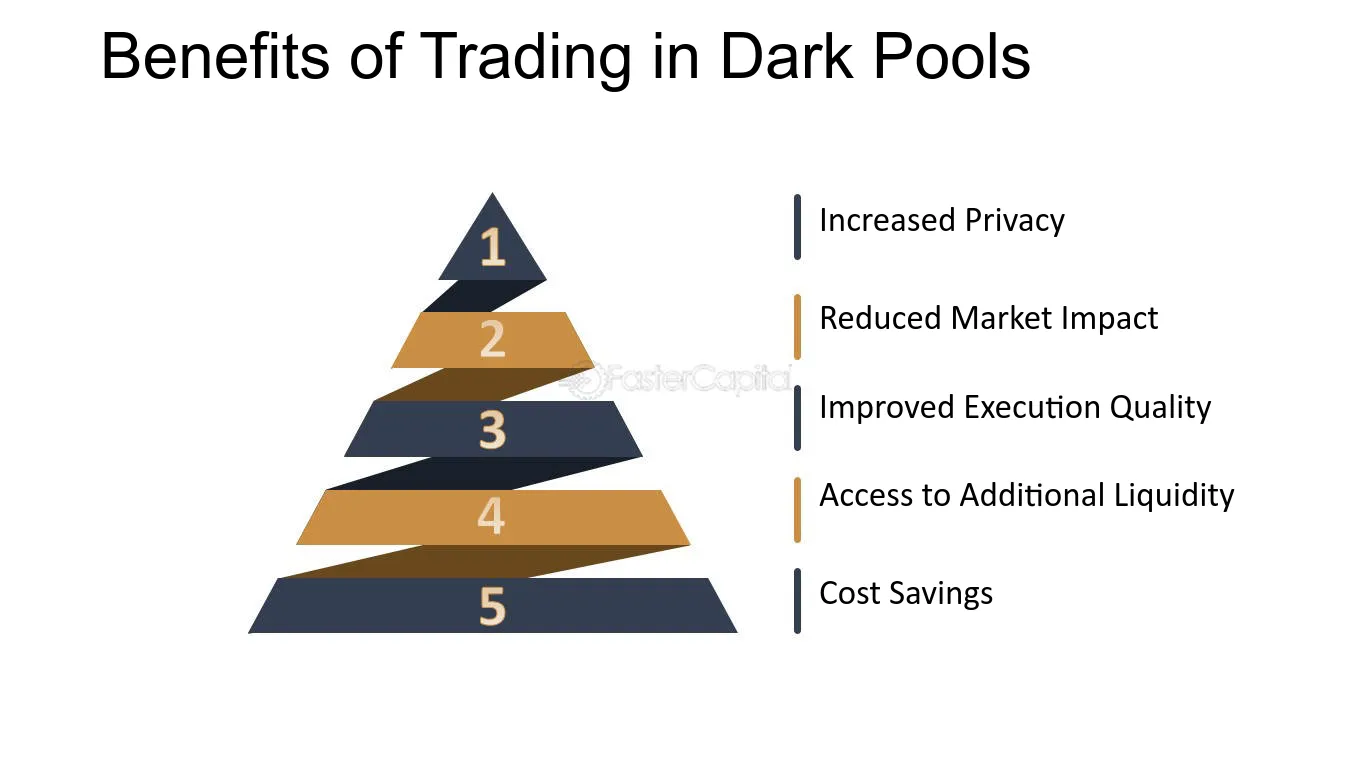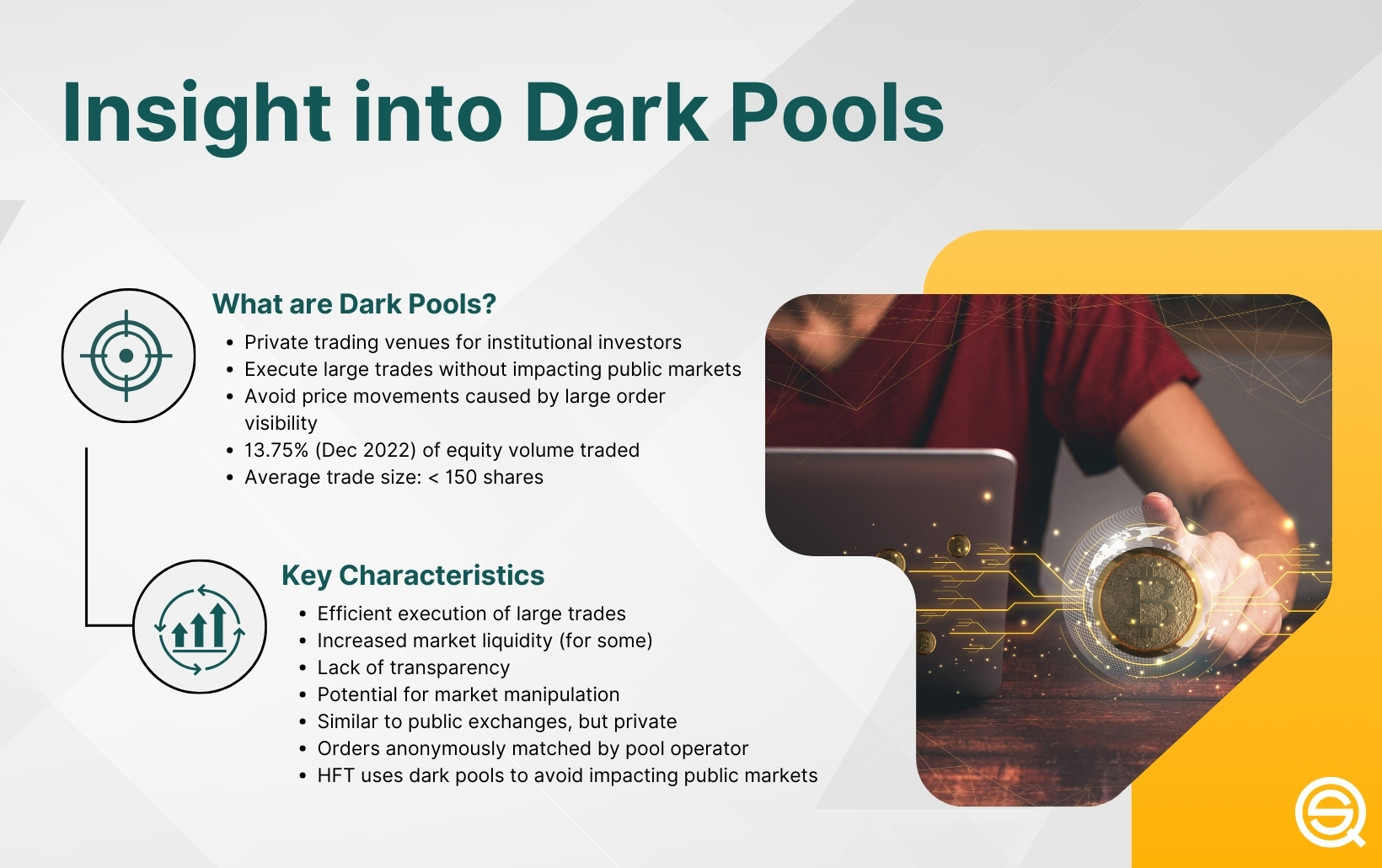Did you know that over 40% of U.S. stock trading occurs in dark pools, often with the same level of visibility as a magician's disappearing act? In this article, we dive into the legality of dark pools for day traders, exploring their function and accessibility. You'll learn about the regulatory landscape governing dark pools, the risks and benefits they present, and how they impact market transparency and price discovery. We also discuss the differences between dark pools and public markets, and whether they are suitable for short-term trading strategies. Finally, we’ll highlight what day traders should consider before venturing into these shadowy waters, ensuring you’re well-informed with insights from DayTradingBusiness.
Are Dark Pools Legal for Day Traders?
Dark pools are legal for day traders, but they are primarily used by institutional traders and large investors. Individual day traders can access dark pools through brokers that offer such venues, but these pools are less transparent and carry higher risks. Regulations govern dark pools to prevent market manipulation, making their use legal but tightly monitored.
What Are Dark Pools and How Do They Work?
Dark pools are private, unregulated trading venues where large institutional investors buy and sell securities without revealing their intentions to the public. They operate outside traditional stock exchanges, allowing big players to execute large orders discreetly, minimizing market impact. For day traders, dark pools are legal but not directly accessible; they are mainly used by institutions. Regulatory bodies oversee dark pools to prevent market manipulation, but day traders cannot trade there directly. Instead, dark pools influence prices on public markets, impacting day trading strategies.
Can Day Traders Access Dark Pools?
Yes, day traders can access dark pools, but only through registered brokerages that connect to these private trading venues. Dark pools are legal for all market participants, including individual day traders, as long as the broker complies with regulatory requirements.
Are Dark Pools Allowed Under Financial Regulations?
Dark pools are legal under financial regulations. They operate as private trading venues for institutional investors, but day traders generally cannot access them directly.
What Risks Do Dark Pools Pose to Day Traders?
Dark pools are legal for day traders, but they pose risks like reduced transparency, potential for market manipulation, and less visibility into large trades. This can lead to less accurate price signals, increased spread costs, and difficulty verifying trade execution. Using dark pools can also cause delays or hidden risks that impact quick, short-term trading strategies.
How Do Dark Pools Affect Market Transparency?
Dark pools are private trading venues that operate outside public stock exchanges, limiting market transparency. They allow large traders to buy or sell significant shares without revealing their intentions, which can obscure market activity. This lack of transparency can lead to less visible price discovery and potentially manipulate perceived market conditions. For day traders, dark pools are legal but don’t directly impact their trading since they mostly involve institutional investors. However, the limited visibility of dark pool trades can influence overall market prices and liquidity, indirectly affecting day trading strategies.
Are There Restrictions on Dark Pool Trading for Retail Traders?
Yes, dark pool trading is legal for retail traders, but they face restrictions. Retail traders generally can't access dark pools directly; these venues are primarily for institutional investors. Some broker platforms might offer access, but with limited information about trades executed there. Regulations require transparency and fair trading, so retail traders should be cautious of potential risks like lack of visibility and price manipulation.
What Are the Benefits of Trading in Dark Pools?

Dark pools offer anonymity and reduced market impact, allowing traders to execute large orders without moving the market. They provide access to better prices through less pre-trade information leakage. Liquidity is often higher, enabling faster execution of sizable trades. For institutional traders, dark pools cut down on price slippage and help manage market impact. However, for day traders, the benefits are limited since dark pools are primarily used for large block trades and institutional purposes.
How Do Dark Pools Impact Price Discovery?
Dark pools limit transparency in price discovery, causing prices to reflect fewer market participants. They can slow down the price discovery process because large trades happen privately, away from public markets. This may lead to less accurate price signals, making it harder for day traders to gauge true market value.
Is Trading in Dark Pools Safe for Day Traders?
Trading in dark pools is legal, but it's not typically suitable for day traders. Dark pools are private exchanges mainly used by institutional investors to execute large orders quietly. They lack transparency, which can increase risks and make quick, informed decisions harder. For most individual day traders, sticking to public exchanges like NYSE or NASDAQ offers better transparency and safety.
Learn about Do Dark Pools Offer Advantages for Day Traders?
What Are the Differences Between Dark Pools and Public Markets?

Dark pools are private trading venues for large institutional orders, offering anonymity and less market impact. Public markets are transparent exchanges open to all traders, with real-time price data and visible order books. Dark pools lack public visibility, leading to less price discovery, while public markets promote transparency and liquidity. For day traders, dark pools are legal but mainly used by institutions; accessing them directly is difficult, and they typically focus on large trades.
Are Dark Pools Suitable for Short-Term Trading Strategies?
Dark pools are legal but primarily used by institutional traders, not ideal for short-term trading strategies like day trading. They lack transparency, which increases risk and makes quick, precise execution difficult for individual traders. While you can access dark pools through certain brokers, their structure favors large, institutional orders over rapid, small trades typical of day trading.
Learn about Are Dark Pools Used in Day Trading Strategies?
How Do Regulations Vary by Country Regarding Dark Pools?
Dark pools are generally legal for day traders in many countries, but regulations differ. In the U.S., they’re regulated by the SEC, with rules on transparency and reporting. Europe’s MiFID II restricts dark pool trading to protect market transparency, requiring firms to disclose dark pool activity. Japan and Canada also have specific rules, often limiting the size and types of trades allowed in dark pools. Some countries impose restrictions or bans on certain dark pool activities, especially to prevent market manipulation. Always check local securities laws to see if dark pools are accessible and legal for day trading.
Can Dark Pools Help Avoid Market Manipulation?
Dark pools are legal for day traders, but they don’t prevent market manipulation. They’re private trading venues that hide order details to reduce market impact. While they can offer better prices and less front-running, dark pools don’t eliminate the risk of manipulation or illegal activities. Day traders can access them legally, but using dark pools doesn’t guarantee protection from market abuse.
What Should Day Traders Know Before Using Dark Pools?
Dark pools are legal for day traders, but they’re primarily for institutional investors and large traders. Using dark pools involves less transparency, which can hide order flow and cause slippage. Day traders need to understand that trades in dark pools may not be executed at the best prices and can be more difficult to access. Regulations govern dark pools to prevent market manipulation, but they still pose risks like reduced visibility and potential conflicts of interest. Always verify if your broker provides access and be aware of the limited transparency compared to public exchanges.
Conclusion about Are Dark Pools Legal for Day Traders?

In summary, dark pools are legal trading venues that can offer day traders unique advantages, such as reduced market impact and privacy. However, they also pose risks related to transparency and price discovery. While regulations vary by country, it’s crucial for traders to understand both the benefits and challenges of dark pool trading. For those looking to navigate this complex landscape, resources from DayTradingBusiness can provide the necessary insights and strategies to make informed decisions.
Learn about Do Dark Pools Offer Advantages for Day Traders?